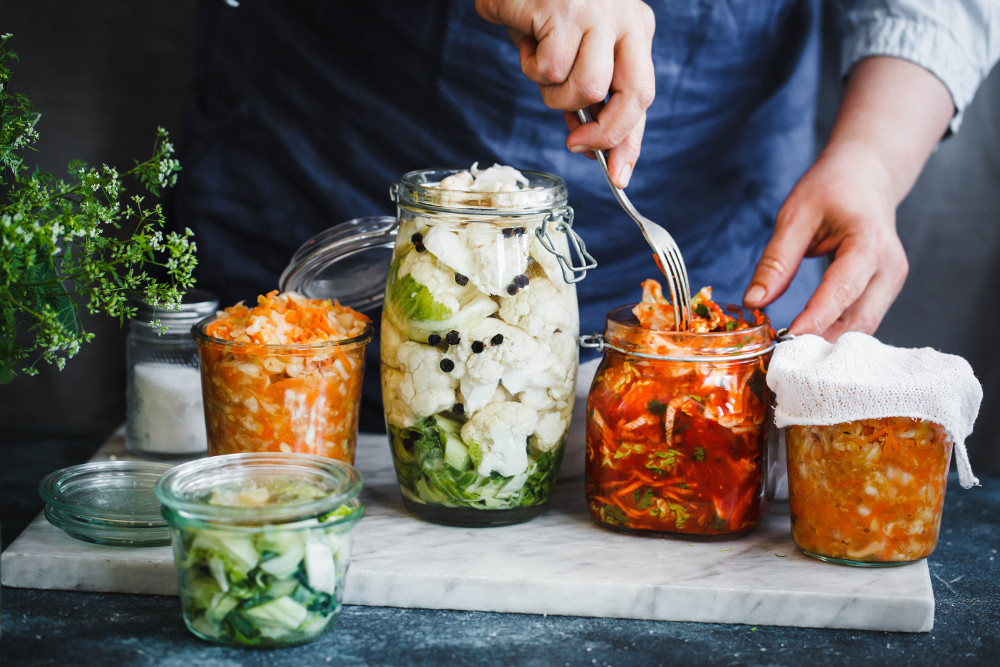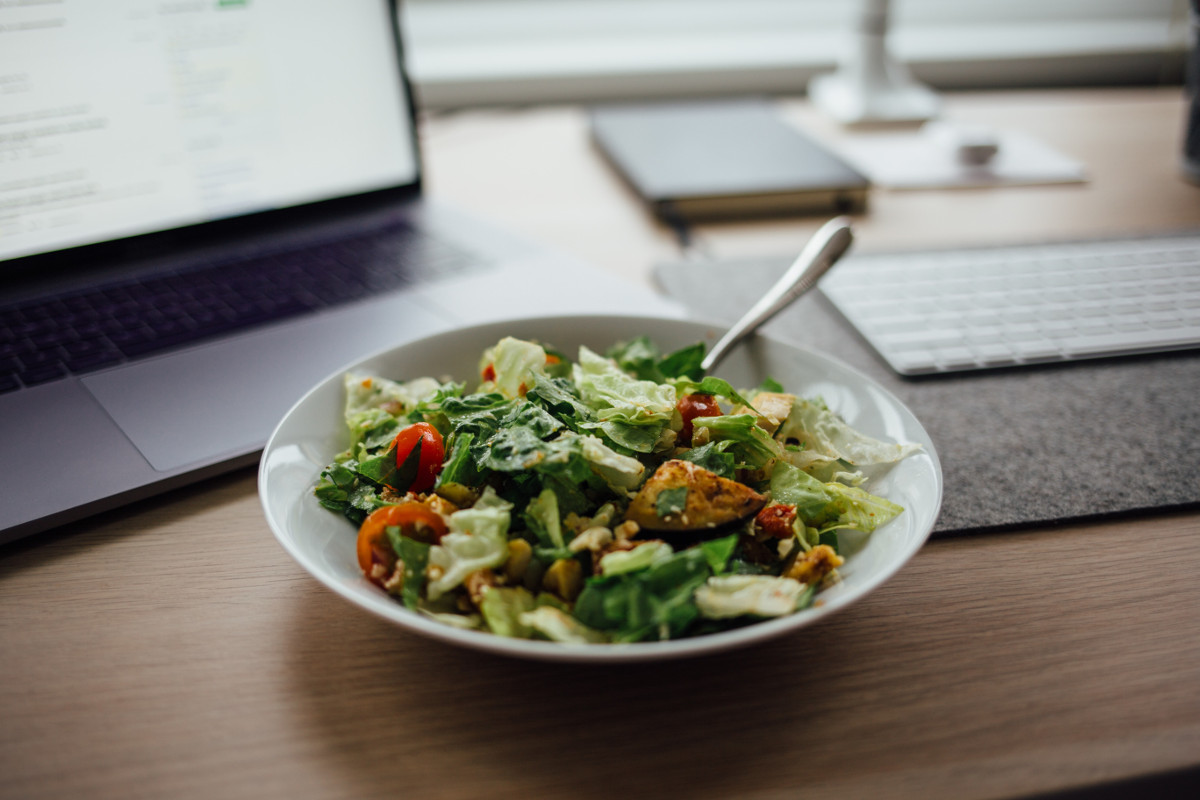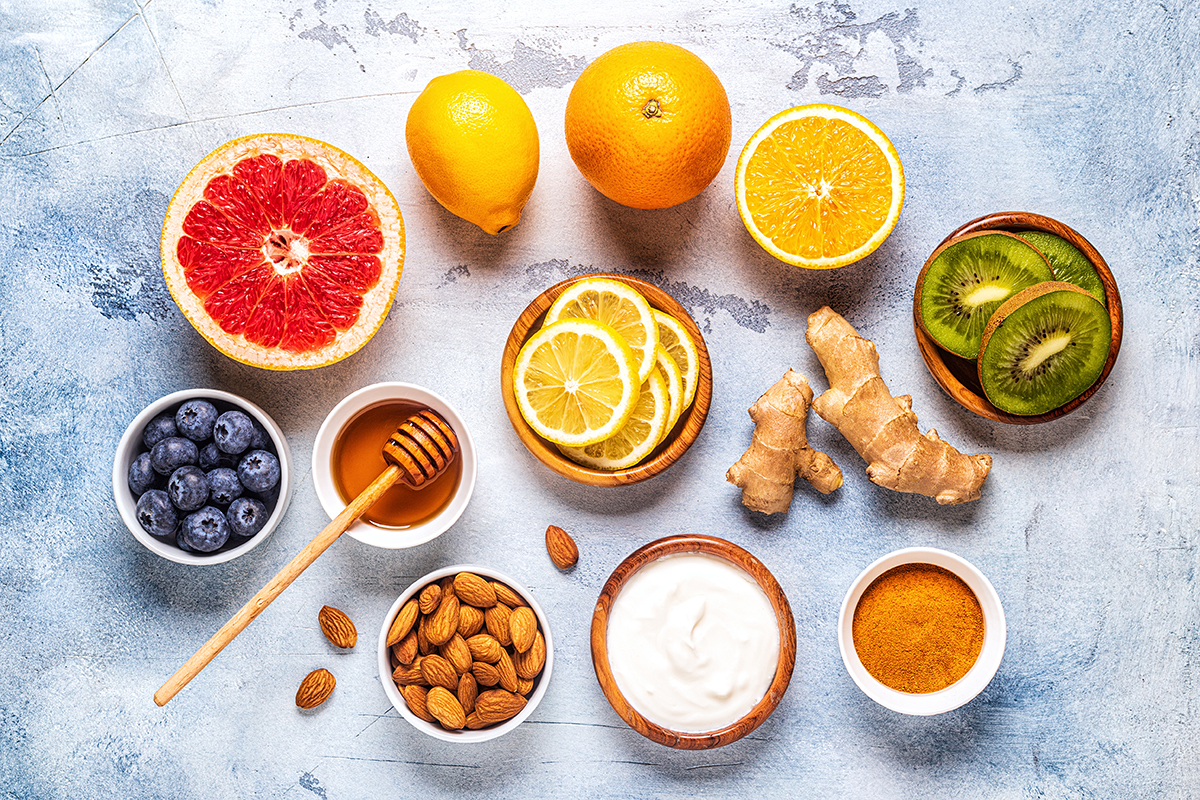Protect your body and improve your immune system with these expert tips!
With a virus on the loose and the majority of us self-isolating, it’s important to know how to boost your immune system. So we sat down with Kriben Govender, registered nutritionist and Founder of Nourishme Organics and Allele Microbiome, for his expert advice.
And the best way to boost immunity? Look after your gut! Because that’s where most of your immunity sits. In fact, according to Kriben, your gut is almost like your second brain, containing its own nervous system that helps control your bodily functions and even your mood.
“Ninety per cent (90%) of serotonin and fifty per cent (50%) of dopamine are produced in the gut,” said Kriben. “The microbiota (ecosystem) of the gut is very closely linked to how you feel.”

Kriben Govender. Image: Supplied
With all this in mind, here are Kriben’s top tips for boosting immunity:
Consume The Vital Vitamins
Those vitamins you’ve learned about in school are vital to your wellbeing. And here they are:
Vitamin A helps strengthen the lining of the tube systems within our bodies, such as your gut lining and the lungs.
Vitamin C optimises the entire immune system and the mitochondria (the ‘batteries’ that power the cells in our body).
Vitamin D is actually a hormone produced by the body that controls calcium levels in the blood and impacts the immune system.
Vitamins A and C can be found in various fruits, vegetables, meats, poultry and fish. Vitamin C has the highest concentration in Camu Camu fruit, while carrots are one of the best for vitamin A.
As for vitamin D, the ultimate way to soak it up is with a good dose of sunshine.
“The key thing is to have exposure in the morning,” Kriben says. “It’s what triggers circadian rhythms, which is the secretion of all the hormones that the body needs during the day.”
Diversify Your Fibre Intake
Many of us are likely to have a small selection of vegetables that we regularly eat, but Kriben recommends to diversify your daily intake. And he implores you to eat plenty of them!
“A lot of Aussies are devoid in fibre,” states Kriben, “we’re just not having enough of it. Fibre is the fuel for very important microbes in the gut.”
Eating a variety of fibre can help to improve gut health and provide that vital support for our immune systems. But don’t eat the same thing over and over again. Try to pick something new each week, especially fruits and vegetables that contain resistant starch. Great sources of resistant starch include wholegrain cereals, starchy vegetables, lentils, chickpeas, baked beans, red kidney beans, nuts and firm bananas.
Ferment Your Vegetables

Fermenting vegetables. Image: Supplied
Fermenting vegetables? We know what you’re thinking. Why would anyone do that?
Well, a recent study showed that L.plantarum, a probiotic found in fermented vegetables, has an antiviral effect against Influenza A. The process of fermentation can also help to increase the bioavailability of some nutrients, which helps the body to absorb more of the vitamins and minerals. Fermented foods are also rich in vitamin B and vitamin K, which are vital to a healthy immune system.
“Our ancestors developed the fermentation process to extend the shelf life of products,” Kriben explained. “So what our ancestors did was salt it and put it in oak barrels – or some sort of vessel – to preserve it so they can have food when times were tough.
“But the process itself of actually salting the cabbage favours lactic acid bacteria – which are peace-keeping bacteria for the body and gut – giving them an advantage over other types of bacteria while still retaining the original benefits of the cabbage.”
You can simply ferment vegetables at home with the right equipment and with little effort, and this will ensure that you will reap the rewards of all the nutrients and the longstanding shelf life.
Balancing Prebiotics and Probiotics
Most of us should know about probiotics; we see it regularly in the yoghurt aisle in the supermarket. To be precise, probiotics are good bacteria that help support the gut lining which then helps to support the immune system.
“When there is a lack of good bacteria in the gut, other forms of bad bacteria may be allowed to grow causing inflammation and compromising the immune system,” said Kriben.
Probiotics can be sourced from a number of foods and drinks, including yoghurt, sauerkraut, kimchi, miso, kefir and kombucha. There are also a number of supplements available, with varying degrees of effectiveness.
As for prebiotics, well they feed the probiotics bacteria, enabling it to work more effectively. Prebiotics are naturally found in a wide range of foods, including bananas, asparagus, artichokes, onion, garlic, flaxseeds, oats, wheat, barley, green vegetables, goji berries and honey.
Exercise Regularly (But Not Too Rigorously)
Exercise is vital for a healthy body, but Kriben recommends limiting your rigorous exercise if you’re worried about your immunity. That’s because exercise puts added pressure on the mitochondria (the ‘batteries’ that power the cells in our body) to create energy.
In this current climate, with COVID-19 taking over the globe, Kriben suggests moderate to light forms of exercise to lower the possible stress on the mitochondria and immune system.
So perhaps closing all the gyms was a good idea after all!
Stick To Fresh Foods

Bowl of salad. Photographed by Nielsen Ramon. Sourced via Unsplash
Gut Health
While artificial supplements are a good substitute if you cannot get the real thing, Kriben highly recommends sourcing your vitamins, probiotics and other health supplements through fresh food.
“My philosophy is to always stick with plant-based or actual food sources with these nutrients,” said Kriben.
Take vitamin C, for instance. According to Kriben, there are many different forms of this vitamin, but manufacturers group it all together into this one bundle and call it vitamin C. But you’re not getting all the varietals of these vitamins that actual food sources provide.
“Another problem with supplements is that there is no feedback loop,” continued Kriben. “It’s a very concentrated form, so there’s no negative feedback loop to tell the body what’s too much.
“Whereas in the food source, there is some feedback. For instance, if you’re getting vitamin C from citrus fruits or berries, the fibres and flavonoids will signal to the body when you’ve had too much.
“Also, very high levels of vitamin C can have a negative health impact, especially in a concentrated supplement form.”
Slurp On Oysters
If there’s one thing that Kriben Govender loves to eat, it’s oysters. But he doesn’t just do it because it’s fancy.
“Oysters are really rich in zinc,” Kriben explained, “which is very important because it is known to suppress the length of time many viruses affect us.
“They are also high in omega 3 fatty acids, which is very important for brain health and gut health.”
And, interestingly, they are high in protein and contain all nine essential amino acids.
Improve Sleep Hygiene
Sleep is amazing because our mind gets to rest and our body gets to repair and regenerate itself. It’s also an essential time for our body to heal and fight off disease.
The most important way to sleep well is to develop a routine. This includes experiencing sunshine first thing in the morning. Because, as previously noted, it triggers circadian rhythms, the biological life cycle for the day.
If you are looking for ways to sleep better, read this.
And if you are looking for more information on sourcing and creating your own fresh and healthy foods, visit Nourishme Organics.


